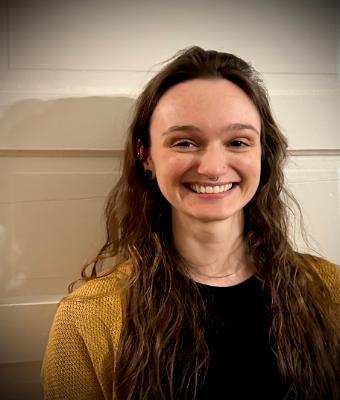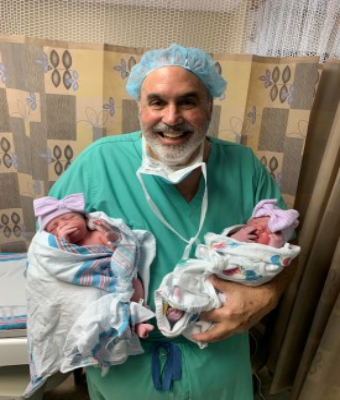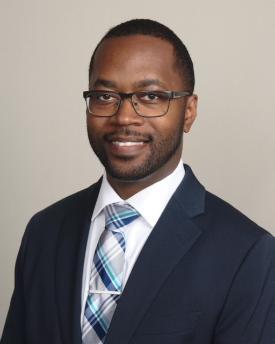Casey McDaniel, LPC, ATR-BC (MS '17)
Nurturing healing through art and psychotherapy
Casey McDaniel, LPC, ATR-BC (MS ’17) has been passionate about art since she was a kid experimenting with different materials.
“I just loved making and creating,” McDaniel says. “I remember I made a dollhouse out of computer paper.”
Her enduring love of art, combined with a fascination with psychology, shaped a career path in which she guides others toward self-discovery and healing. McDaniel is a psychotherapist and a board-certified art therapist. She also is pursuing certification as an eating disorder specialist.
Growing up in Norwood, a small town near Boston, Casey was an honors student and captain of the gymnastics and volleyball teams. In high school, an introduction to psychology class sparked her interest in the subject and understanding how people think. Personal experiences with therapy during her adolescence also played a pivotal role in her career choice. She wanted to be able to provide to others the kind of support she needed back then.
After double majoring in psychology and studio art at the University of Vermont, McDaniel spent some time working at a domestic violence shelter as well as mentoring a girl at a youth center.
She then pursued her master’s in art therapy and counseling at EVMS. She appreciated EVMS’ clinical approach and described her experience as “a whirlwind” – an intensive, immersive period that shaped her into a well-rounded clinician. Faculty were incredibly supportive, she said, and the small class size led to close-knit relationships.
Upon graduating from EVMS in 2017, McDaniel went into community health, providing direct care and supervision in intensive in-home and mental health skill-building services, in addition to providing outpatient therapy.
In 2020, she joined the team at Peninsula Child and Family Services. She specializes in outpatient therapy, primarily with children and teenagers dealing with eating disorders.
“It’s just really wonderful to see the spark come back for people as they start to see themselves for how amazing and awesome and cool they actually are,” she says. “It’s such a privilege to be part of that journey with them.”
Her approach is a combination of verbal therapy and art therapy. The latter isn’t as much about developing art skills as it is about clients’ “authentic expression and their engagement in the process,” she said. McDaniel noted that process and materials instruction from Matthew G. Bernier, MCAT, ATR-BC, Associate Professor in EVMS’ Art Therapy and Counseling, MS program, was especially helpful. Students learned about different materials available for art making, from pencils to found materials to paint, and their applications.
The art therapy program also helped McDaniel foster her own artistic identity. “It’s not just that we have people use these tools. I also use them for myself to do some art-making,” she says in an interview from her office, where a chalk wall serves as a canvas for her own creative expressions. She also enjoys collage and working with acrylic paints.
McDaniel has remained involved with the art therapy program, participating in trainings and making presentations.
Despite her busy work schedule and personal life — she just got married in October — McDaniel accepted the opportunity to serve on the EVMS Alumni Advisory Board. . She recognizes the importance of staying connected with the EVMS community, sharing knowledge, and contributing to the education of future professionals.
Learn more about the Art Therapy and Counseling Program at EVMS here.
-340x400.jpg)

